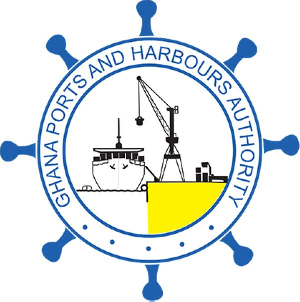Kwame Nkrumah is the most prolific presidential writer in the post-colonial history of Africa. His over a dozen books including Towards Colonial Freedom (1962) and the even critical anti-western diatribe Neo-colonialism the Last Stages of Imperialism (1965) did not only serve as a blue-print for many of the freedom fighters (especially those in Southern African-Zimbabwe, Malawi and the African National Congress) in Africa’s decolonisation period (1950-60) but as basis for Ghana’s foreign policy-especially economics and politics from 1957-66. If he wrote, much has also been written about him-good and bad than any African leader.
Many of the criticisms against him by scholars such as Ali Mazrui and Nkrumah’s co-patriots, J.B. Danquah and the liberal establishment had to do with sacrificing the economy of Ghana to pursue a Pan-African ideology and integration during the Cold War, a herculean task which providence has proved was necessary in part.
Few of his ministers and top-flights had written to defend some of the foreign policies Nkrumah made. Peace Without Power-Ghana’s Foreign Policy 1957-1966 by Kwesi Armah, who sadly passed away last November and served as a member of the Council of State to the current Kufuor presidency , is one of such publications that seeks from a personal and insider’s view, to correct some of the misrepresentations, criticisms and why certain mistakes were made. Having served as Ghana’s High Commissioner at the Court of St. James’, London, the hub of Ghana’s diplomatic workings and also as Minister of Foreign Trade, Armah in this book explains the politics that influenced certain trade policies by the Nkrumah government but more importantly, how a small man ideologically confident but with limited influence in one of the most polarised periods of global crisis-the Cold War, met his waterloo. Ghana’s Pan African policy, he explains on page 9 “was based on the ideas of black pride, black identity, African emancipation and unity.” These go to earlier times and credit Africa as originators of mathematics, medicine, astrology and others according to Armah. While this may sound abstract to some and far too remote because of Africa’s current predicament, it is so because Nkrumah “realised that the factors militating against achievement of black pride, black identity, African emancipation and unity were colonialism and domination.” This indeed is the frame-work that defined much of the policy pursued by Nkrumah according to Armah.With this, Armah explains under chapters, Nkrumah’s policy on De-colonialisation and Foreign Policy; African Unity-The Aspiration; The Economic Aspects of Foreign Policy; Ghana and World Peace; Major Issues of World Politics. The most poignant explanation offered for Ghana’s post-independence underdevelopment is thus equated to, on the external side, the inheritance of the colonial economy which served the interest of Europe such that the Capital Investment Act of 1963, a policy to attract foreign capital failed; domestic factors included lack of requisite expertise and capital and the political opposition offered by the National Liberation Movement that between 1954-57 demanded a federal form of government against Nkrumah’s unitary one. Inability to industrialise as Nkrumah wanted, is connected to Ghana and Africa as exporters of raw materials instead of value addition to them. It is in this same ideological frame-work that the Government’s attitude to international aid, foreign investment, capital accumulation and exchange, European common market and intra-African trade and foreign policy are explained. Peace Without Power which was originally submitted to Oxford University as thesis for Armah’s Master of Letters in 1981, is undoubtedly a defensive book of Nkrumah’s foreign policy and reinforces Armah’s earlier defence in works such as Ghana: Nkrumah’s Legacy (1974) and Africa’s Golden Road (1965). But by centralising on political economy mainly to explain this creates problems. Nkrumah is famous for his dictum, “seek ye first the political kingdom and all else will be added unto thee.” This belief affected the running of the economy. For instance while Armah argues strongly in pages 112-113 about the need to acquire capital to build institutions and infrastructure, it was to the political friendly socialist countries of China and Eastern European, less endowed themselves, that Nkrumah turned to for fair trade, markets and foreign investment, when there was the possibility that more aid could have come from the West after the construction of the Hydroelectric dam over the Volta Lake and when leaders in East Asia for example, given the choice opted for those who could help. Non-aligned as a political strategy hardly helped since Nkrumah was associated with the East bloc more then anything else. Arthur Lewis who advised Nkrumah on Ghana’s economy in the late 1950s and later won the Nobel Prize was also a Pan-African but thought that not all the problems of undevelopment in Ghana could be blamed on the imperial interest of Britain and Europe.
It was unfortunate that it was on the altar of ideological position that led to Nkrumah’s overthrow as he travelled to Hanoi to mediate in the Asian crisis in 1966. He had worked in international conflict situations such as the Congo Crisis, The Sino-Indiana border dispute and even though he showed in many of these missions that he meant peace, he did not have the power, as Armah’s book title aptly described, to make his views and undoubted vision see the light of the day.















